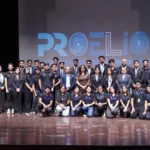Larsen & Toubro (L&T) Chairman SN Subrahmanyan’s audacious proposition of a 90-hour work week has thrown a cat among the pigeons, igniting fervent debates across professional and public domains. His suggestion that toiling on Sundays could bolster “competitiveness” has rekindled age-old dilemmas surrounding work-life balance, productivity, and employee well-being.
This discourse isn’t sailing in uncharted waters. Luminaries like Tesla’s Elon Musk, Infosys founder Narayana Murthy, and Alibaba’s Jack Ma have championed analogous ideologies. Yet, empirical evidence repeatedly discredits the correlation between marathon work hours and amplified productivity or economic advancement.
The Evolution of the 40-Hour Work Week
The genesis of the 40-hour work week was a direct rebuttal to the draconian labor conditions of the Industrial Revolution, where workers endured up to 16-hour days. Henry Ford’s 1926 move to institutionalize a five-day, 40-hour work week unearthed a paradox: shorter hours spurred both productivity and profits.
Supporting data soon followed suit. For instance, Kellogg’s six-hour shifts in the 1930s reduced workplace accidents by a staggering 41%. Moreover, the International Labour Organization (ILO) immortalized the 8-hour day in international law in 1919, spotlighting its indispensability for safeguarding worker health and productivity.
The Grim Health Repercussions of Overwork
Working excessive hours isn’t just burning the candle at both ends; it’s playing with fire. Consider these sobering insights:
- WHO Study: Logging 55+ hours weekly elevates stroke risk by 35% and heart disease by 17%, courtesy of chronic stress, cortisol spikes, and adverse lifestyle adaptations.
- Global Occupational Toll: The WHO/ILO reported that long work hours were culpable for 745,000 fatalities from heart disease and stroke in 2016 alone. These numbers underscore a silent epidemic, categorized among the gravest occupational hazards globally.
- Mental Health Fallout: Studies in Frontiers in Psychologydelineate stark links between extended hours and depression, burnout, and psychological distress. Common red flags include neglect of self-care, disrupted sleep patterns, and incessant anxiety over work obligations.
Debunking the Myth: Quality Trumps Quantity
The myth that long hours are synonymous with stellar outcomes has been debunked time and again:
- Stanford University Study: Productivity nosedives beyond 49 hours weekly, with increased error rates, inefficiencies, and workplace injuries.
- Global Contrasts: India’s annual 2,123 work hours yield a GDP per capita of $6,711, while nations like Germany, boasting fewer hours, far outperform through meticulous systems and superior work methodologies.
Ripple Effects on Corporate Ecosystems
Work cultures endorsing relentless schedules are blindfolded to both empirical evidence and human necessities. Tragedies like the untimely demise of a 26-year-old EY Pune employee last year spotlight the dire physical and mental costs of overwork.
Despite corporate lip service to well-being initiatives, the underlying pressure to stretch beyond sustainable limits undermines such efforts. The fallout? Rampant inefficiencies, plummeting morale, and escalating attrition rates.
Rethinking the Paradigm: Blueprint for Reform
To pivot away from this unsustainable trajectory, policymakers and organizations must adopt a more enlightened framework:
- Flexible Work Models: Hybrid and remote setups can reconcile efficiency with personal commitments.
- Stringent Work Hour Caps: Enforcing a 48-hour weekly limit, as outlined in labor laws, mitigates health hazards while enhancing productivity.
- Wellness-Driven Cultures: Mental health programs, regular breaks, and robust employee support systems can replenish morale and vitality.
- Skill Enrichment: Instead of demanding endless hours, organizations should bolster workforce competence via training and technology.
- Outcome-Oriented Metrics: Evaluating employees on deliverables, not desk time, fosters efficiency without unnecessary strain.
Leadership’s Pivotal Role
As the saying goes, “The fish rots from the head.” Leadership’s commitment to crafting humane, innovative workplace cultures will determine whether businesses thrive or merely survive. Progressive leaders appreciate that creativity, health, and motivation are the lifeblood of enduring success.
Subrahmanyan’s contentious remarks offer a golden opportunity for introspection. Instead of doubling down on antiquated notions, organizations should embrace forward-thinking paradigms emphasizing equilibrium, well-being, and quality.
Ultimately, businesses must remember: You can’t run on empty, nor can you extract brilliance from a burnt-out workforce.

















